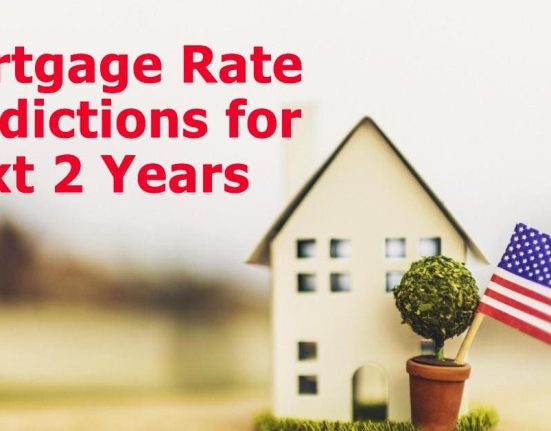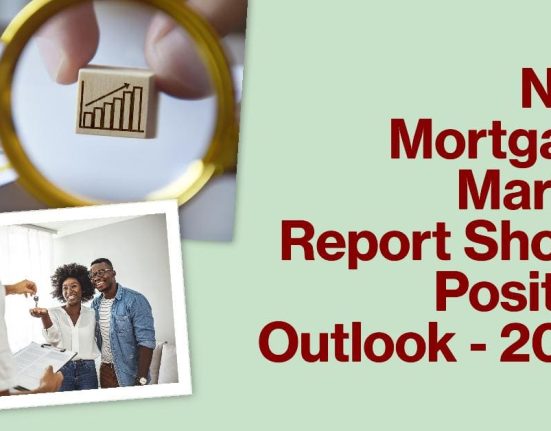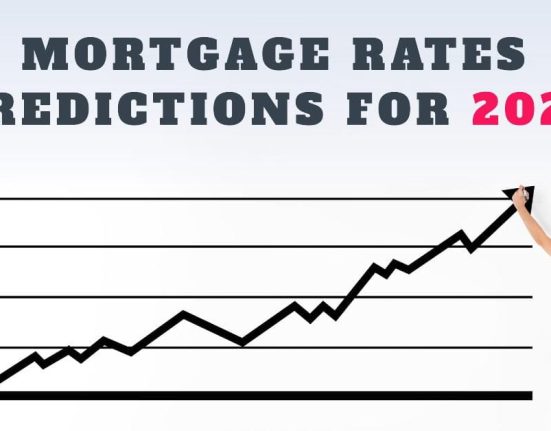The landscape of US mortgage rates is a dynamic and ever-evolving arena, influenced by a myriad of economic factors and policy decisions. As we look ahead to the next five years, potential homebuyers and current homeowners are keenly interested in how these rates might fluctuate, impacting affordability and the housing market at large.
Current Trends and Forecasts for Next 5 Years
Recent analyses and expert forecasts suggest a period of fluctuation in mortgage rates in the United States. The average 30-year fixed mortgage rate has remained below 7% in 2024, with expectations of a gradual decrease over the year, assuming the Federal Reserve implements anticipated interest rate cuts. This aligns with projections from the Mortgage Bankers Association (MBA), which anticipates the 30-year fixed-rate mortgage to end 2024 at 6.1%, with a further decline to 5.5% by the end of 2025.
Fannie Mae’s Housing Forecast echoes this sentiment, predicting the 30-year mortgage rate to conclude 2024 at 6.4%, a slight uptick from previous forecasts, but still indicative of a downward trend. Similarly, insights from the National Association of Realtors and Bank of America suggest rates hovering in the 6% to 7% range for the majority of the year, with potential rate reductions later in the year as economic conditions evolve.
The U.S. News Housing Market Index provides a broader perspective, indicating that while mortgage rates are expected to slowly fall, the housing market will experience a gradual thaw, with prices stabilizing due to a persistent lack of supply. This gradual decline in rates is anticipated to encourage a rebound in existing home sales, which had fallen to a 28-year low in 2023.
Trading Economics offers a more optimistic outlook, predicting a rise to 5% in 2023 before falling to 4.25% in 2024 and 3.25% in 2025. This forecast is supported by Morningstar’s analysis, which projects rates between 3.75% and 4%.
Preparing for Mortgage Rate Changes in the Next Five Years
The prospect of fluctuating mortgage rates can be daunting for both prospective homebuyers and current homeowners. With predictions indicating a period of change in the coming years, it’s crucial to have a strategy in place to navigate potential rate increases or decreases. Here are some steps to consider when preparing for mortgage rate changes over the next five years:
1. Stay Informed
Keeping abreast of economic trends and mortgage rate forecasts can provide valuable insights into when rates might rise or fall. Regularly check reputable financial news sources and consider subscribing to updates from financial institutions.
2. Fixed vs. Adjustable-Rate Mortgages (ARMs)
If you’re concerned about rising rates, locking in a fixed-rate mortgage can provide stability. Conversely, if rates are predicted to fall, an ARM might offer initial savings, though it comes with the risk of rates increasing in the future.
3. Refinancing Opportunities
If you already have a mortgage and rates drop, refinancing could lower your monthly payments and overall interest. However, it’s important to consider closing costs and how long you plan to stay in your home before making this decision.
4. Budget for Fluctuations
If you’re in the market for a new home, budget for the possibility of higher rates. This might mean looking at homes below your maximum budget to accommodate potential rate increases.
5. Improve Your Credit Score
A higher credit score can help you secure a lower mortgage rate. Take steps to improve your credit by paying down debt, making timely payments, and avoiding new credit inquiries.
6. Save for a Larger Down Payment
A larger down payment can reduce your loan-to-value ratio, potentially qualifying you for better rates and terms.
7. Consider Loan Terms
Shorter loan terms typically have lower interest rates but higher monthly payments. Determine what loan term aligns with your financial goals and capabilities.
8. Understand Rate Caps
For ARMs, understand the rate caps that limit how much your interest rate can change at each adjustment period and over the life of the loan.
9. Government Policies and Programs
Stay updated on government policies that may impact mortgage rates, such as changes in the Federal Reserve’s policies or housing market regulations.
10. Consult Financial Advisors
A financial advisor can offer personalized advice based on your financial situation and goals. They can help you understand the implications of rate changes and the best course of action.
By taking these steps, you can position yourself to better handle the ups and downs of mortgage rates. Remember, preparation and knowledge are key to making informed decisions that align with your long-term financial well-being.
Now, be informed that it’s important to note that these predictions are subject to change based on unforeseen economic shifts, policy changes, and global events. The consensus among experts, however, points to a general trend of declining mortgage rates over the next five years, offering a glimmer of hope for those looking to enter the housing market or refinance their existing mortgages.
As we navigate through these uncertain times, staying informed and consulting with financial advisors can help individuals make well-informed decisions regarding their mortgage options. The trajectory of mortgage rates will undoubtedly play a pivotal role in shaping the US housing market’s future, and by extension, the dreams of countless Americans seeking to own a piece of it.







